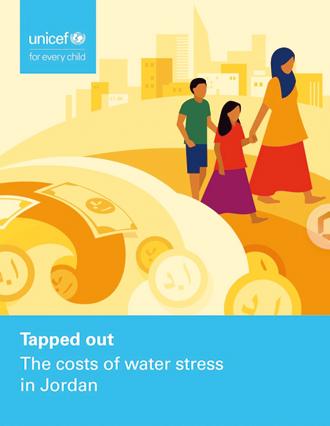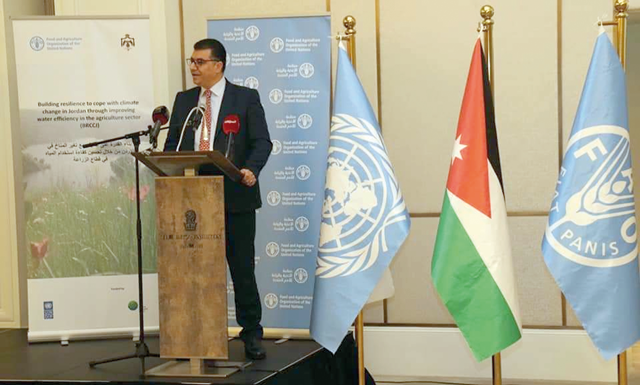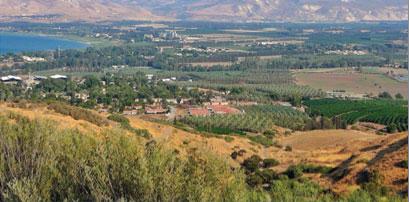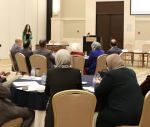You are here
Water stress threatens vulnerable groups — study
By Rayya Al Muheisen - Jul 20,2022 - Last updated at Jul 21,2022

AMMAN — UNICEF and the Ministry of Water and Irrigation launched a new study titled “Tapped Out — The Cost of Water Stress in Jordan” on Wednesday.
“The impacts of climate change and water stress are among the key risks to long-term growth in Jordan,” the study says.
Developed by Economist Impact, the study warns that serious socio-economic consequences await countries around the world, as they battle rising temperatures, climate change and increasing food prices, which will disproportionately affect women and children.
According to the study, Jordan, as one of the most water-stressed nations in the world, is “a case in point” into how the global water shortages result in additional costs.
Matus Samel, the lead author of the report, said during the launch event that Jordan “is a blueprint for where a world in water deficit is going”.
With less than 100 cubic metres of renewable water resources annually available per person, Jordan is “significantly below” the “absolute water scarcity” threshold of 500 cubic metres, according to the study.
“The social and economic damage of the growing water deficit will impact not only agriculture, but also the services sector, which is key to Jordan’s economy,” the study adds.
Samel noted that in “nearly every part of the world”, demand for water is greater than supply and climate change is drying up critical water supplies.
Without “swift action” to make water systems around the world more efficient, “we are facing a water crunch that will eclipse the food crunch we are already experiencing,” he added.
‘Childs rights crisis’
Tanya Chapuisat, the representative of UNICEF Jordan, said at the event that climate change and water scarcity is also a “child’s rights crisis”.
“Taking urgent action now to protect this extremely precious resource is not only in Jordan’s best interest but, as this study shows, a regional and global imperative to protect the livelihoods of future generations,” Chapuisat added.
The study notes that the growing issue of water scarcity is a risk particularly to the most vulnerable groups, including children, as well as those facing food insecurity, refugees and low-income households.
“An increase in childhood illnesses caused by lack of access to water might not only stunt children’s growth and development, but will decrease their capacity for learning and reduce their long-term earning potential, particularly for girls,” the study adds.
The study reports that women and girls are disproportionately affected by inadequate water access due to their role in domestic activities and the importance of sanitation during menstruation, pregnancy and infant care.
“Inadequate access to proper sanitation and hygiene will also have a knock-on effect on national efforts to increase the participation of women in the workforce,” the study says.
Regional dialogue key
With tension rising over competition for water resources in the Middle East and North Africa (MENA) region, the study notes the importance of dialogue and diplomacy, necessary to enhance water security.
“Jordan as a downstream country currently obtains 40 per cent of its water from trans-boundary basins, leaving it heavily dependent on its upstream neighbours,” the study adds.
The study reports that regional cooperation for an “integrated management” of rivers and aquifers that stretch across borders would strengthen regional water security.
“The international community also has a role to play by providing monetary assistance and resources,” the study says.
The study includes recommendations for policies that could reduce water stress and help protect vulnerable populations and the economy.
For instance, the study found that the new desalination projects aimed to reduce water loss and leakage could “significantly minimise” the growing pressure on water resources.
The study notes that despite being a water-stressed country, water-use practices in Jordan “are not efficient and need to improve”.
Related Articles
AMMAN — The UN Food and Agriculture Organisation (FAO) on Wednesday launched the “Building resilience to cope with climate change in Jordan
AMMAN — Jordan has seen a decline of its agricultural sector productivity over the last six years as a result of prolonged cycles of negativ
AMMAN — Water Minister Hazem El Nasser on Sunday met with a Korean parliamentary delegation headed by Vice Speaker of the Korean National As


















